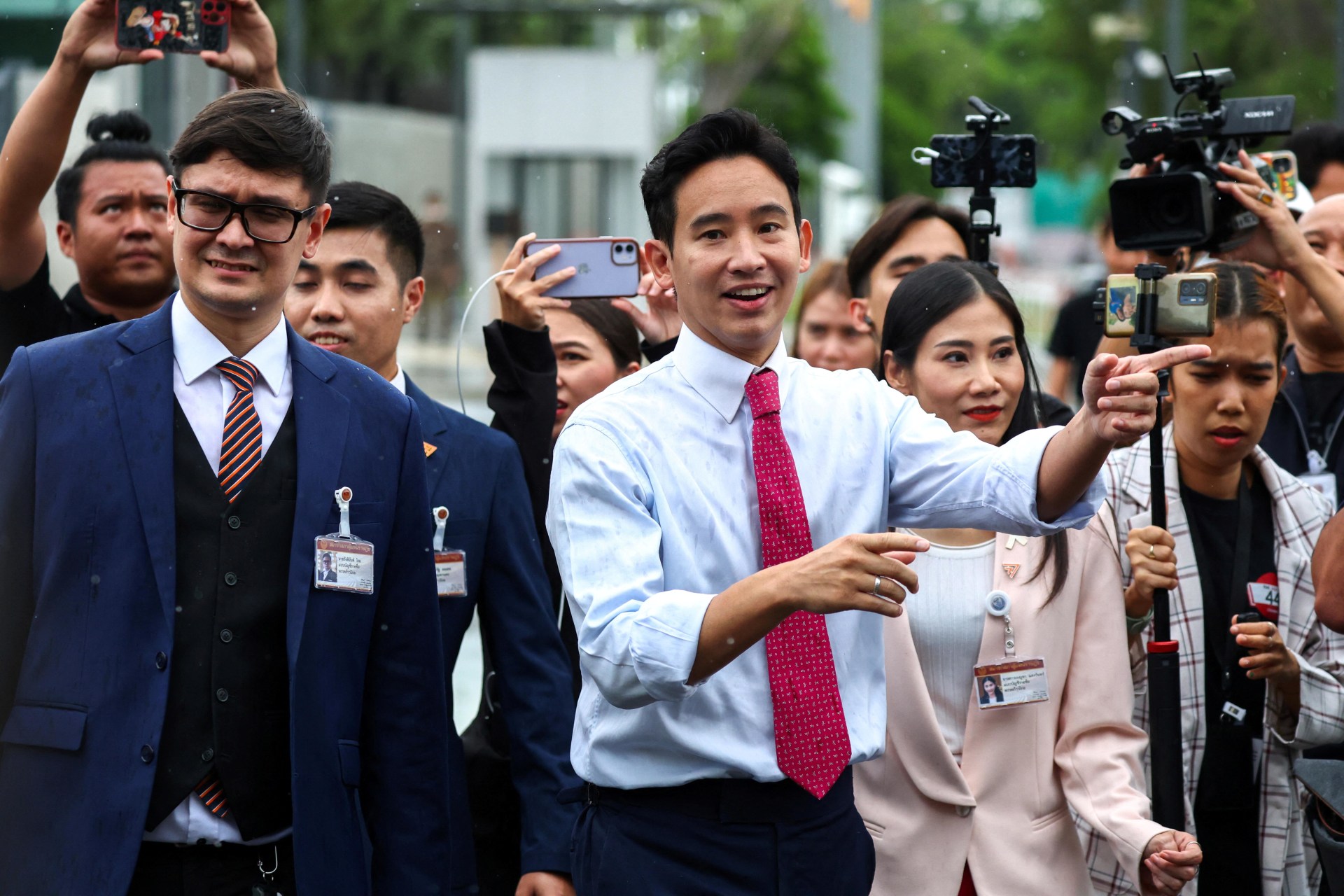Thailand’s Political Negotiations: The Current State of Play
The nomination of a compromise candidate for speaker of the House of Representatives demonstrates the pro-democracy coalition’s pragmatism, but its chances of forming a new government are still uncertain.

By experts and staff
- Published
Experts
![]() By Joshua KurlantzickSenior Fellow for Southeast Asia and South Asia
By Joshua KurlantzickSenior Fellow for Southeast Asia and South Asia
By
- Abi McGowanGlobal Conflict Analyst
One can never be sure of anything in Thai politics, but the deal by the pro-democracy coalition of Pheu Thai and Move Forward to make veteran politician Wan Muhamad Noor Mutha speaker of the lower house if the coalition can win control of government represents a major breakthrough for the pro-democracy coalition’s campaign to form a government. The deal between Pheu Thai and Pita Limjaroenrat‘s Move Forward shows a willingness to compromise, as the nomination was a source of contention among the two biggest parties in the coalition. The appointment of Wan Noor of the more conservative Prachachart Party reduces—and probably eliminates—the possibility that current Deputy Prime Minister Prawit Wongsuwon is floated as a compromise candidate for any senior positions, including prime minister.
Moreover, the pick installs a veteran speaker (albeit one who has played all sides in the past) to sway senators from the upper house, whose votes are needed to put the coalition over the top with 376 total votes from the upper and lower house. It does indeed make it more likely that the coalition will pick up enough votes to enter government and establish Pita as prime minister. Although the vote for prime minister has been delayed to July 13, Wan Noor has said that even if the pro-democracy coalition fails in getting enough votes to take control of the government and make Pita prime minister on the first ballot, he will keep submitting Pita’s name on the second and third ballots, according to Khao Sod.
The joint statement from the two big parties announcing Wan Noor’s appointment showed sophistication and compromise. Pheu Thai joined the more progressive and aggressive Move Forward in calling for real military reform in a statement released around the same time as the Wan Noor announcement. Military reform is highly popular and desperately needed, but the joint statement did not reference the monarchy or a reform of lese-majeste laws—indicating that Move Forward and Pheu Thai recognize the issue is too politically sensitive while trying to woo senators, though Move Forward and its supporters desperately want to end the country’s draconian lese-majeste laws and perhaps take other steps to normalize the monarchy.
Despite some senators’ complaints about Move Forward’s platform, and even some complaints about the compromise speaker candidate, the situation shows that the opposition pro-democracy party is not as inflexible as it might have seemed. Move Forward’s pragmatism is a reassuring sign for how it and the coalition would operate in a fractious parliament in which they would surely face a range of unrelenting bureaucratic, legal, and political attacks.
It is also a strong sign that Pheu Thai has not been lured away by senators or military-aligned parties, despite clear concern by some more traditional figures in Pheu Thai about certain aspects of Pita’s platform. Another factor that may convince senators to back the pro-democracy coalition is its strong degree of support from all generations of Thais, which cannot be discounted as simply the support of “foolish” young people, as Thai blogger Kaewmala has noted.
The coalition is proving savvier in recruiting than one might have imagined, though of course no one can say for sure whether they can win the support of 376 legislators from the two houses. Even if they do, the coalition’s support would still be somewhat unstable if they intend to push through even half of their proposed reforms.
And once in power, Pita will face an onslaught of challenges as prime minister, from the election commission case lodged against him to every obstacle the establishment can throw at a party that wants root and branch reform of some of the kingdom’s most powerful and entrenched institutions, in an era in which the dominant political figure of the past two decades, Thaksin Shinawatra, seems to be fading in influence.
But some members of the current military-aligned government realize how discredited their leadership has become, especially after Prime Minister Prayuth Chan-ocha’s disastrous rule. The idea the current government would totally undermine coalition rule to set the stage for a super unpopular military-aligned prime minister, or even a coup, would prompt a much stronger public response than any time since the middle class “cell phone” protests of 1992. The 1992 protests badly discredited the army and led to the first era in which it could have been placed under more civilian control, although that failed, which is partly the fault of then-Prime Minister Thaksin.
